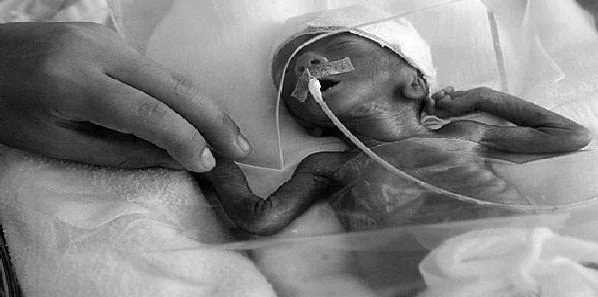Results of an Asia-wide survey show that attitudes and practices surrounding end-of-life care for patients in hospital intensive care units (ICUs) varied widely amongst physicians on the continent. The survey covered 1,465 physicians (physician response rate of 59.6 percent), who manage patients in 466 ICUs (ICU response rate of 59.4 percent) in 16 Asian countries and regions, including Bangladesh, China, Hong Kong, Iran and Thailand.
The majority of physicians surveyed (70.2 percent) reported they almost always or often withhold life-sustaining treatments for patients with no real chance of recovering a meaningful life, 20.7 percent almost always or often withdraw life-sustaining treatments, and 2.5 percent almost always or often deliberately give large doses of drugs, such as barbiturates or morphine, until the patient dies.
Jason Phua, FRCP, of the National University Hospital, Singapore, and colleagues used survey data to describe physicians’ attitudes toward withholding and withdrawal of life-sustaining treatments in end-of-life care and evaluate the factors tied to those attitudes. The results are published online by JAMA Internal Medicine.
Interestingly, survey results also reveal that 74.5 percent of respondents believe that withholding and withdrawing treatments were ethically different. This view is supported by the majority of respondents in all countries and regions except Singapore and Hong Kong.
Other key findings of the survey include:
According to the research team, “Multiple factors related to country or region, including economic, cultural, religious and legal differences, as well as personal attitudes, were associated with these variations. Initiatives to improve end-of-life care in Asia must begin with a thorough understanding of these factors.”
Asia accounts for at least half of all patients with critical illness, mechanical ventilation and ICU deaths internationally, Phua's team noted, but data on end-of-life care in ICUs in Asian countries are sparse.
In an accompanying commentary, Mervyn Koh, MBBS, MRCP, FAMS, and Poi Choo Hwee, MBBS, MRCP, of Tan Tock Seng Hospital, Singapore, write: “Overall, Phua et al. have successfully reflected the varying attitudes of Asian ICU physicians toward withdrawal and withholding of life-sustaining treatments. Moving forward, more research can be done to study ICU physicians’ attitudes toward palliative care collaborations in Asia.
"Qualitative studies examining patients’ and families’ views on prolonged mechanical ventilation, withholding and withdrawal would also shed light on the complex influences affecting decision making and effective provision of end-of-life care for patients in the ICU. Subspecialty ICUs may also have differing practices that may be worthwhile to explore at a deeper qualitative level as well.”
Source: JAMA
Image Credit: Google Images
The majority of physicians surveyed (70.2 percent) reported they almost always or often withhold life-sustaining treatments for patients with no real chance of recovering a meaningful life, 20.7 percent almost always or often withdraw life-sustaining treatments, and 2.5 percent almost always or often deliberately give large doses of drugs, such as barbiturates or morphine, until the patient dies.
Jason Phua, FRCP, of the National University Hospital, Singapore, and colleagues used survey data to describe physicians’ attitudes toward withholding and withdrawal of life-sustaining treatments in end-of-life care and evaluate the factors tied to those attitudes. The results are published online by JAMA Internal Medicine.
Interestingly, survey results also reveal that 74.5 percent of respondents believe that withholding and withdrawing treatments were ethically different. This view is supported by the majority of respondents in all countries and regions except Singapore and Hong Kong.
Other key findings of the survey include:
- 84.1 percent and 77.9 percent of respondents, respectively, reported that patients’ wishes and requests from family or surrogates were important factors when considering limiting life-sustaining treatment.
- 43.9 percent of respondents were comfortable discussing limitation of care with families or surrogates.
- 35.6 percent of respondents said patients, families or surrogates almost always or often requested inappropriate life-sustaining treatments.
According to the research team, “Multiple factors related to country or region, including economic, cultural, religious and legal differences, as well as personal attitudes, were associated with these variations. Initiatives to improve end-of-life care in Asia must begin with a thorough understanding of these factors.”
Asia accounts for at least half of all patients with critical illness, mechanical ventilation and ICU deaths internationally, Phua's team noted, but data on end-of-life care in ICUs in Asian countries are sparse.
In an accompanying commentary, Mervyn Koh, MBBS, MRCP, FAMS, and Poi Choo Hwee, MBBS, MRCP, of Tan Tock Seng Hospital, Singapore, write: “Overall, Phua et al. have successfully reflected the varying attitudes of Asian ICU physicians toward withdrawal and withholding of life-sustaining treatments. Moving forward, more research can be done to study ICU physicians’ attitudes toward palliative care collaborations in Asia.
"Qualitative studies examining patients’ and families’ views on prolonged mechanical ventilation, withholding and withdrawal would also shed light on the complex influences affecting decision making and effective provision of end-of-life care for patients in the ICU. Subspecialty ICUs may also have differing practices that may be worthwhile to explore at a deeper qualitative level as well.”
Source: JAMA
Image Credit: Google Images
References:
Phua J, Joynt GM, Nishimua M et al. (2015) Withholding and withdrawal of life-sustaining treatments in intensive care units in Asia. JAMA Intern
Med 175(3). doi:10.1001/jamainternmed.2014.7386
Latest Articles
End-of-Life, palliative care, critically ill, Asia, attitudes
Results of an Asia-wide survey show that attitudes and practices surrounding end-of-life care for patients in hospital intensive care units (ICUs) varied w...










